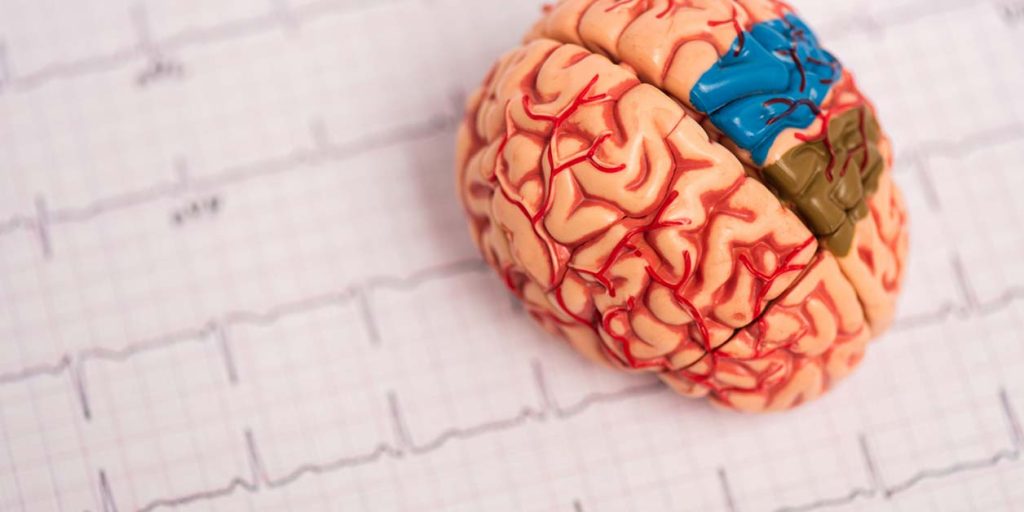Dating someone with ADHD can present challenges and rewards. Understanding the symptoms of ADHD and its impact on relationships is essential for building a successful partnership. This article delves into the misconceptions and positive aspects of dating someone with ADHD, offering insights into navigating such relationships. Discover practical tips and strategies for fostering a healthy relationship with an individual with ADHD, emphasizing the importance of open communication and empathy in creating a strong partnership.
What is ADHD?
ADHD, which stands for Attention Deficit Hyperactivity Disorder, is a neurodevelopmental disorder that impacts an individual’s ability to focus, control impulses, and regulate emotions.
It is important to recognize that individuals with ADHD may exhibit symptoms such as difficulty in paying attention, hyperactivity, and impulsivity. These characteristics can manifest in various ways, leading to challenges in school, work, and social settings.
Treatment for ADHD typically involves a combination of medication, therapy, and lifestyle modifications. Understanding the impact of ADHD on individuals is crucial in promoting neurodiversity and providing appropriate support and accommodations.
By raising awareness and fostering acceptance, we can create a more inclusive and supportive environment for individuals with ADHD.
What are the Symptoms of ADHD?
ADHD manifests through a combination of symptoms, including hyperactivity, impulsivity, and inattentiveness, which can vary in intensity and presentation.
Individuals with ADHD often experience difficulties focusing on tasks, sustaining attention, and organizing activities effectively. Hyperactivity symptoms can manifest as constant fidgeting, restlessness, or feeling on edge, making it challenging to sit still for extended periods. Impulsivity may lead to impulsive decision-making, interrupting others during conversations, and difficulty waiting for their turn.
These symptoms can significantly impact daily functioning, work performance, and relationships, creating challenges in maintaining responsibilities and social interactions.
How Does ADHD Affect Relationships?
ADHD can significantly impact relationships by introducing unique challenges related to communication, emotional regulation, and support mechanisms within the partnership.
Individuals with ADHD may struggle with staying focused during conversations, leading to misunderstandings or missed cues that hinder effective communication. Emotional dysregulation can cause intense reactions or impulsive behavior, which may strain the bond between partners. This can create a rollercoaster of emotions for both individuals, requiring a delicate balance of patience and understanding in navigating the ups and downs.
Establishing strong support systems that involve clear expectations, open dialogue, and mutual respect can help couples effectively cope with the complexities that ADHD brings into their relationship.
What Are the Challenges of Dating Someone with ADHD?
Dating someone with ADHD presents challenges related to understanding their symptoms, coping with impulsivity, and finding effective communication strategies to navigate the relationship.
One of the key challenges in such a relationship is managing the impact of ADHD symptoms on daily interactions. Individuals with ADHD may struggle with time management, organization, and focus, making it important for their partner to be patient and empathetic.
Coping mechanisms like setting up structured routines and creating visual aids can be beneficial for both parties. Clear and open communication is crucial. Active listening, providing positive reinforcement, and addressing issues calmly can help foster a stronger connection and mutual understanding between partners.
How Does ADHD Affect Communication in a Relationship?
ADHD can impact communication in a relationship by introducing distractions, affecting listening skills, and requiring adaptive strategies to foster effective interaction and mutual understanding.
These distractions can interfere with the ability to stay focused during conversations, leading to misunderstandings and difficulty in processing information.
Individuals with ADHD may struggle with maintaining attention, which can be perceived as disinterest or lack of engagement by their partner. It’s crucial for both partners to actively listen, practice patience, and communicate openly about their needs and boundaries.
Implementing strategies like setting clear communication rules, using visual aids, and taking breaks when needed can help create a supportive environment for effective communication in relationships affected by ADHD.
What Are the Common Misconceptions About Dating Someone with ADHD?
Common misconceptions about dating someone with ADHD include assumptions about impulsivity, lack of focus, and stigma surrounding neurodivergent individuals that hinder self-awareness and understanding.
It’s important to recognize that individuals with ADHD can bring unique perspectives and strengths to a relationship. While impulsivity and focus issues may be challenges, they do not define the person entirely.
Self-awareness plays a crucial role in navigating these differences effectively and fostering mutual understanding. Addressing societal stigma towards neurodivergent individuals is essential for creating a more inclusive and supportive environment where everyone feels accepted and valued for who they are.
What Are Some Tips for Dating Someone with ADHD?
When dating someone with ADHD, it is essential to educate yourself about the condition, be patient and understanding, communicate effectively, establish structure and routine, and seek professional help when needed.
Learning about ADHD and its coping strategies can help you better support your partner. It’s important to approach challenges with empathy and understanding, adapting to their unique needs.
Utilize clear and concise communication techniques to avoid misunderstandings and foster a strong connection. Establishing supportive routines together can create a sense of stability and predictability which can be comforting for both partners.
Remember, seeking assistance from therapists or support groups can provide valuable insights and resources for navigating the relationship.”
Educate Yourself About ADHD
Educating yourself about ADHD is crucial in developing a deeper understanding of the condition, learning coping mechanisms, and exploring appropriate treatment options.
One essential aspect to focus on when educating oneself about ADHD is recognizing the diverse array of symptoms that can manifest in individuals with this condition. These symptoms may vary from inattention and hyperactivity to impulsivity and difficulty with organization. By becoming well-versed in these symptoms, individuals can better identify patterns and triggers in their own behavior or that of their loved ones. Understanding the symptoms allows for the implementation of tailored coping strategies which can significantly enhance daily functioning and quality of life.
Be Understanding and Patient
Practicing understanding and patience is key when dating someone with ADHD, as it fosters a supportive environment, encourages empathy, and promotes effective communication.
Empathy allows you to put yourself in your partner’s shoes, seeing things from their perspective and understanding their struggles. Being patient means realizing that progress may be gradual and setbacks are part of the journey. By providing consistent support, you create a safe space for open dialogue and growth within the relationship. Effective communication becomes a bridge to navigate challenges together, ensuring that both partners feel heard and valued in the relationship.
Communicate Effectively
Effective communication is essential in navigating relationships impacted by ADHD, requiring clear strategies, respectful boundaries, active listening, and mutual understanding.
When communicating in a relationship influenced by ADHD, setting and maintaining healthy boundaries is crucial. These boundaries help establish a sense of structure and predictability, which can be particularly beneficial in managing symptoms of ADHD.
Active listening plays a key role in effective communication, as it involves fully engaging with the other person’s thoughts and emotions. By actively listening, individuals can demonstrate empathy and validation, fostering a deeper connection.
Understanding the unique challenges that ADHD can pose in communication allows partners to approach conversations with patience and awareness.
Create Structure and Routine
Establishing structure and routine can provide stability and support for individuals with ADHD, aiding in organization, time management, and mitigating distractions.
- By incorporating specific organizational strategies such as creating visual schedules, breaking tasks into smaller manageable steps, and using color-coded systems, individuals can enhance their focus and productivity.
- Incorporating time management techniques like setting timers, prioritizing tasks, and establishing daily routines can help in managing responsibilities effectively.
- Minimizing distractions by designating specific workspaces, utilizing noise-canceling headphones, and implementing technology tools for task reminders can further improve concentration and task completion.
Seek Professional Help if Needed
In cases where additional support is required, seeking professional help such as therapy, medication management, and building a robust support system can be instrumental in navigating the challenges of ADHD in relationships.
Therapy can provide valuable tools and coping mechanisms to enhance communication and understanding between partners, helping them navigate the unique dynamics that ADHD can introduce.
Medication options, when used in conjunction with therapy, can assist in managing symptoms effectively, promoting better focus and impulse control.
Establishing a strong support system that includes family, friends, and possibly support groups can offer encouragement, understanding, and a sense of community, crucial in fostering resilience and maintaining healthy relationships amidst the complexities of ADHD.
What Are Some Positive Aspects of Dating Someone with ADHD?
Dating someone with ADHD can bring unique positive aspects to a relationship, including creativity, empathy, and a genuine enthusiasm for shared experiences.
Individuals with ADHD often possess a remarkable ability to think outside the box, which can lead to novel and exciting adventures within a relationship. Their heightened empathy allows them to connect deeply with their partners, understanding their emotions on a profound level. Their infectious enthusiasm for life can ignite a spark in the relationship, infusing it with energy and vibrancy. These traits not only enhance the dynamics of the relationship but also foster a sense of genuine authenticity and connection between partners.
Creativity and Spontaneity
Individuals with ADHD often exhibit creativity and spontaneity, infusing relationships with passion, growth opportunities, and a fresh perspective on shared activities.
Their vibrant energy and unique way of thinking can lead to exciting and novel experiences for both partners. The ability to think outside the box and see things from different angles can bring a sense of adventure and unpredictability to the relationship. This spontaneity can keep the connection alive and prevent monotony.
Their passion for various interests can inspire their partners to explore new hobbies and expand their horizons. As a result, relationships with individuals with ADHD often thrive on a mix of creativity, excitement, and continuous personal growth.
Passion and Enthusiasm
Passion and enthusiasm are hallmark traits of individuals with ADHD, fostering a deep sense of love, connection, and engagement in relationships.
Individuals with ADHD often infuse their relationships with a heightened sense of excitement and spontaneity, injecting a refreshing dynamic into day-to-day interactions. Their boundless energy and unfettered enthusiasm can inspire partners to embrace new experiences and viewpoints, creating a strong emotional bond.
This innate passion can also manifest in a strong sense of empathy and understanding, as those with ADHD are often deeply attuned to the emotions and needs of their loved ones, fostering an environment of mutual support and intimacy.
Empathy and Sensitivity
Individuals with ADHD often exhibit high levels of empathy and sensitivity, promoting understanding, compassion, and emotional connection within relationships.
Their unique ability to tune into the emotions of others can be a powerful asset in fostering deeper connections with their partners. While managing ADHD symptoms may present challenges, their empathetic nature allows them to be attuned to their partner’s needs, offering support and comfort when it is most needed. In times of conflict, their sensitivity can help them navigate difficult conversations with a heightened awareness of the emotional impact, paving the way for constructive resolutions and strengthened bonds.
How Can a Relationship with Someone with ADHD Succeed?
Building a successful relationship with someone with ADHD requires open communication, unwavering support, and a willingness to seek professional help when necessary.
Creating an environment of understanding and empathy is crucial in fostering a strong connection with an individual with ADHD. Acknowledging their unique strengths and challenges while maintaining patience and flexibility can greatly enhance the relationship.
Encouraging a sense of collaboration and active problem-solving empowers both parties to navigate challenges together. It’s important to educate oneself about ADHD to better comprehend their experiences and provide appropriate support.
Regular check-ins, setting clear expectations, and celebrating achievements can reinforce positive dynamics and build trust within the relationship.
Open Communication and Understanding
Maintaining open communication and fostering mutual understanding are vital in nurturing a successful relationship with someone with ADHD, requiring empathy, respect for boundaries, and active listening.
Empathy plays a crucial role in connecting with and supporting your partner with ADHD. By understanding their perspective and emotions, you can create a safe and supportive environment.
Setting clear boundaries is essential to establish expectations and maintain a healthy dynamic. Through active listening, you demonstrate your commitment to understanding their experiences and concerns, strengthening the bond between you both.
Ultimately, communication-based on empathy and respect for boundaries can lead to a more fulfilling and harmonious relationship despite the challenges of ADHD.
Support and Empathy
Providing unwavering support and genuine empathy can help navigate the challenges and leverage the strengths that come with being in a relationship with someone with ADHD.
Understanding the unique struggles that may arise, such as difficulties with organization or impulsivity, allows for a more patient and accommodating approach. By recognizing the individual’s strengths, whether it be creativity, resilience, or hyperfocus, you can empower them to thrive. Offering a safe space for open communication and actively listening without judgment fosters trust and connection. Building a foundation based on support and empathy not only benefits the individual with ADHD but also strengthens the bond within the relationship.
Seeking Professional Help if Needed
When facing significant challenges, seeking professional help such as therapy, counseling, or guidance can offer valuable insights and strategies to strengthen the relationship with someone with ADHD.
Therapy can provide a safe space for open communication and understanding between partners affected by ADHD-related issues. Through therapy sessions, individuals can learn effective ways to communicate, manage emotions, and navigate the unique dynamics that come with ADHD. Support services like group therapy or couples counseling can offer a sense of community and shared experiences, fostering a deeper connection and empathy within the relationship. Treatment options may include medication management, behavior therapy, and lifestyle modifications that can positively impact the relationship dynamic.







